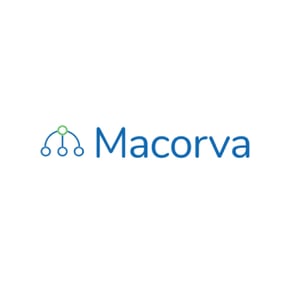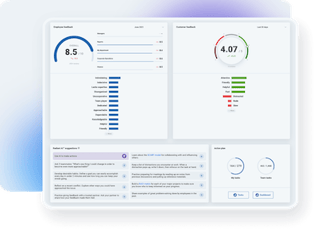
16 Essential Questions to Understand and Improve Employee Engagement in 2025
Employee engagement is often hailed as a critical component of a business’s success. It’s frequently defined as the emotional commitment employees have to the organization and its goals. However, it’s more than just a buzzword or a nice-to-have attribute; it’s a powerful driving force behind productivity, retention, innovation, and overall business performance.
When employees are truly engaged, they’re not just satisfied with their jobs or happy at work. They’re emotionally invested in the company’s mission and objectives, striving to contribute their best efforts to drive the organization’s success. They become advocates for the company, infusing their roles with passion and dedication. This level of engagement is a potent catalyst for business growth.

However, enhancing employee engagement isn’t a straightforward process. It requires a deep understanding of your employees’ emotional investment in your company, which can be challenging to gauge as emotions are subjective and experiences can vary significantly from person to person.
Monitoring employee engagement has become even more complex with the rise of hybrid and remote work options. You’ll need to rely heavily on surveys and digital communication, which some employees may complete on autopilot. But if you want to obtain actionable insights from your team, you need to make them feel heard. That’s where the power of asking the right questions comes into play.
Knowing the right questions to include in your employee engagement surveys is critically important. It’s not just about asking questions for the sake of it but about carefully thinking through what the responses will look like and ensuring that the questions will yield actionable insights. The goal is to delve into your employees’ experiences and perceptions to uncover their level of emotional commitment to your company.
Each question should be designed with a clear purpose in mind, aiming to reveal valuable insights that can inform your employee engagement strategies. For example, understanding how employees perceive the company’s mission and values can help you identify any disconnects or opportunities for enhancing communication. Similarly, gauging their perception of managerial support or team dynamics can shine a light on areas that may need improvement.
Here are 10 direct employee empowerment questions that will help you understand and improve employee engagement, along with some context and examples to explain why these questions are crucial:
1. Do you understand the company's missions and values?
Understanding and connecting with the company’s mission and values is a fundamental aspect of employee engagement. Research has found that when employees feel a strong alignment with company goals and values, they’re more likely to be engaged. By asking employees if they understand your company’s mission and values, you gain insights into how deeply they connect with them. For instance, if an employee can clearly articulate the company’s mission and how their role contributes to it, it’s a good sign they feel engaged. On the other hand, if employees struggle to understand or connect with the company’s mission, it could indicate a disconnect that’s impacting their engagement.
To deepen this connection, help employees relate their responsibilities to broader company initiatives. For example, if your company has launched a new social and environmental program, ask, “How does your work contribute to our social and environmental goals?” This encourages reflection and reinforces alignment with company values.
The goal is to form a direct connection between an employee’s day-to-day tasks and the larger mission. People will feel a stronger sense of purpose within the organization when they understand how their efforts contribute to the big picture.
2. What does it take to be successful here?
This question can give you a glimpse into how employees perceive success within the company. If they mention things like teamwork, accountability, and alignment with company goals, it’s a good indicator that they understand what is valued in the organization. Conversely, if they express uncertainty or suggest that success is based on favoritism or politics, it may indicate an engagement issue. Understanding their perceptions of success can help you clarify expectations and ensure that success is defined and recognized in a way that aligns with the company’s values and objectives.
3. Has the company set you up to succeed?
Learning and development opportunities are powerful catalysts for success and engagement at work. Research has found that when employees have opportunities for learning and development, they’re more likely to be engaged. This question helps you gauge whether employees feel they’re being given the resources and opportunities to grow and succeed. If they feel the company is investing in their development, it can significantly enhance their sense of engagement. Conversely, if they feel overlooked or stagnant in their roles, they may become disengaged.
Dig a little deeper into how employees feel about the company and its efforts to help them thrive. Ask, “Are you able to manage your work and personal responsibilities effectively with our current policies?” If they say “no,” find out why and implement a strategy to fix the issue.
While remote work is increasingly popular these days, it’s not an option for every organization. If your company isn’t in a position to implement remote or hybrid work, explore other ways to promote productivity and good work-life balance. For example, you can simplify the process of requesting time off or allow employees to swap schedules with supervisor approval.
4. Are you happy working here?
While engagement isn’t the same as happiness, the two are closely linked. Asking employees if they’re happy can provide valuable insights into their overall job satisfaction.
A follow-up question of, “How would you rate your overall well-being, including mental health, while working here?” can help you uncover specific aspects of work life that are driving engagement (or disengagement). It’s essential to remember that happiness can come from many sources, from enjoying the day-to-day tasks to feeling recognized for their efforts to having strong relationships with co-workers. You need to support the whole person, not just their work activities.
5. Do you have the resources to do your job well?
Having the necessary job resources, whether they’re physical tools, software, or access to information, is crucial for employees to do their jobs effectively. If employees feel they lack these resources, it can lead to frustration and disengagement. This question can help you identify any resource gaps that may be hindering productivity and engagement. Addressing these issues promptly not only improves efficiency but also shows employees that you value their input and are committed to their success.
6. Does your work align with the company's goals and objectives?
People need to see the bigger picture and understand how their work contributes to the company’s overall success. If they don’t, it could explain why they feel disengaged. This question can help you determine whether employees see the connection between their work and the company’s goals. If they do, it’s likely to boost their sense of purpose and engagement. If they don’t, it presents an opportunity for you to clarify this connection and help them see the value of their contributions.
Remember that alignment is a two-way street. With that in mind, ask your employees, “In what ways do you see your role supporting our company’s focus on technological advancements and sustainability?” This approach helps employees connect the dots between your company’s initiatives and their daily responsibilities.
7. Does your manager recognize your efforts and contributions?
 Managerial recognition plays a significant role in employee engagement. Research shows that when managers provide recognition and demonstrate their interest in employee growth, engagement is higher. Simple acts of recognition, such as a word of thanks or recognition in a team meeting, can have a significant impact on an employee’s sense of value and engagement. This question can help you gauge whether managers are effectively recognizing their team members and offering the support they need to thrive.
Managerial recognition plays a significant role in employee engagement. Research shows that when managers provide recognition and demonstrate their interest in employee growth, engagement is higher. Simple acts of recognition, such as a word of thanks or recognition in a team meeting, can have a significant impact on an employee’s sense of value and engagement. This question can help you gauge whether managers are effectively recognizing their team members and offering the support they need to thrive.
8. Does your manager support your goals?
Beyond day-to-day tasks and performance goals, employees also have personal career aspirations. They need to feel that their managers are invested in their professional growth and career aspirations. If managers actively support their team members’ goals, it can foster a sense of loyalty and engagement. This question can help you understand whether employees feel supported in their career aspirations and what steps managers can take to further nurture this support.

Bring feedback data and manager experience together
Automatically create personalized performance materials like meeting agendas and reviews, OKRs, SMART goals, and more. See how it works
9. Do you enjoy working with your current team?
Positive relationships with coworkers can significantly improve engagement. According to Gallup research, having strong relationships with coworkers directly affects how engaged an employee is at work. This question can help you assess the health of team dynamics and identify areas for improvement.
10. Are your teammates accountable to one another?
Accountability within a team is crucial for its success. If employees feel that their teammates are reliable and committed, it can cultivate a sense of trust and camaraderie, which can boost engagement. This question can help you understand how employees perceive the level of accountability within their teams.
 Employee engagement and employee experience aren’t one and the same. However, they are closely connected. Gleaning insights into the employee experience can help you identify and fix engagement issues. Here are some questions to dig deeper into how team members perceive your workplace and their roles in it.
Employee engagement and employee experience aren’t one and the same. However, they are closely connected. Gleaning insights into the employee experience can help you identify and fix engagement issues. Here are some questions to dig deeper into how team members perceive your workplace and their roles in it.
6 Questions to Dig Deeper Into the Employee Experience
The following questions can help you better understand how employees perceive the workplace and their interactions with coworkers and management. Our team has included specific questions that explore key employee experience topics like inclusivity, personal growth, and well-being, all of which impact engagement.
Here are some key questions to consider when aiming to understand and optimize the employee experience:

11. Does our company create an environment that promotes a healthy work-life balance?
Achieving work-life balance is vital for employee satisfaction and productivity. When your team members feel supported in balancing their personal and professional responsibilities, they are more likely to stay engaged and loyal.
A survey of 27,000 workers suggests that nearly half of employees aren’t focused on career progression but are more concerned with work-life balance. Consider how you can promote a better work-life balance, such as offering more PTO, allowing shift swaps, or implementing flexible schedules.
12. Do you feel included and valued in our workplace?
Your employees should feel like part of the team and realize the value of their contributions. This question helps you gauge whether employees feel a sense of belonging or not. Surprisingly, 75% of workers report that they have felt excluded at their jobs.
Companies like Salesforce have taken proactive steps to promote equality and ensure employees feel valued. For example, Salesforce conducts regular pay audits to identify and address salary disparities, fostering a sense of fairness and inclusion.
There are several ways you can make your team members feel more included. Creating employee resource groups (ERGs) allows different worker groups to voice complaints and drive organizational change.
ERGs can empower employees to voice their concerns and provide valuable insights for your leadership so that they can adequately address challenges and implement meaningful change. If multiple ERGs (or the members of one large group) are united about a particular issue, it’s a clear sign you need to listen to their concerns.
13. How comfortable are you with the technology and tools we use?
Only 50% of employees are satisfied with the resources their organization provides to help them learn to use new tech. This question gives you a glimpse into how your team feels about the tech and support you provide them.
Investing in the latest and greatest technology can be a good move. However, you aren’t going to experience a strong return on investment (ROI) unless your employees are actually using the tools you give them. If your team members aren’t comfortable with a particular technology, figure out why so you can work to fix the problem.
14. Do you believe our company is committed to being environmentally and socially responsible?
Many employees, especially younger ones, expect their companies to actively address key social and environmental issues. Demonstrate your desire to support real change by gauging how your employees view your company’s commitment to social and environmental responsibilities.
Patagonia is a company that has taken significant strides to reduce its carbon footprint. These efforts have positively impacted Patagonia’s reputation with environmentally conscious customers. They also make the company an appealing landing spot for younger workers who are passionate about sustainability. To follow suit, you’ll need to develop transparent sustainability goals and involve employees in your corporate social responsibility (CSR) initiatives. 
15. How well does our company support your mental health and well-being?
Lost productivity linked to anxiety and depression costs the global economy approximately $1 trillion annually. Mental health is a critical component of overall productivity and retention.
By asking this question, you signal to employees that their mental health and well-being are a priority to the company. You can also identify potential shortcomings within your organizational practices that may lead to burnout and mental strain.
Consider exploring the development of an employee assistance program (EAP) if one isn’t already in place, as it can provide valuable resources to support employees’ mental health and overall well-being. If you already offer an EAP, reviewing usage data and awareness levels can help ensure employees are aware of its benefits and are using the resources effectively to address their needs.
16. How do you see yourself growing within our company over the next few years?
You want employees to think about the future and how your company will be a part of it. Employees who see clear opportunities for growth are more motivated and less likely to seek opportunities elsewhere. 94% of employees report that they would stay with their organization longer if it invested in their professional growth and development.
Adobe invests in worker growth via its Learning Fund, which provides tuition reimbursement for eligible employees. The Learning Fund demonstrates that Adobe supports the growth of its employees while also cultivating a more skilled workforce.
Explore ways to invest in the development of your team members. If tuition reimbursement isn’t an option, consider in-house mentorship programs and personalized career path meetings that help workers identify future opportunities within the organization.
Employee Engagement Benefits Your Entire Organization
While every employee’s experience in the workplace is unique, asking direct, empowering questions can help you better understand those experiences. Gathering meaningful data is an essential part of running a successful company. Armed with knowledge, you can take targeted actions to address areas of concern and improve employee engagement, which can benefit your organization in a multitude of ways.

Coming up with the right questions for your employee surveys can be challenging, but platforms like Macorva can help. Macorva offers over 150 I/O psychologist pre-defined engagement questions to help you gain a deep understanding of your employees’ engagement levels. Furthermore, Macorva’s Radiant AI can create custom engagement questions automatically, providing you with the tools you need to measure and enhance employee engagement effectively. Whether it’s understanding the company mission and values, learning and development opportunities, employee happiness, or manager support, Macorva’s platform can help you uncover the truth about your employees’ experiences and engagement. By leveraging these tools, you can drive meaningful improvements in engagement, leading to greater productivity, retention, and overall business success.
Editors note: this blog was originally published in October 2019 and has been updated for accuracy and comprehensiveness.








